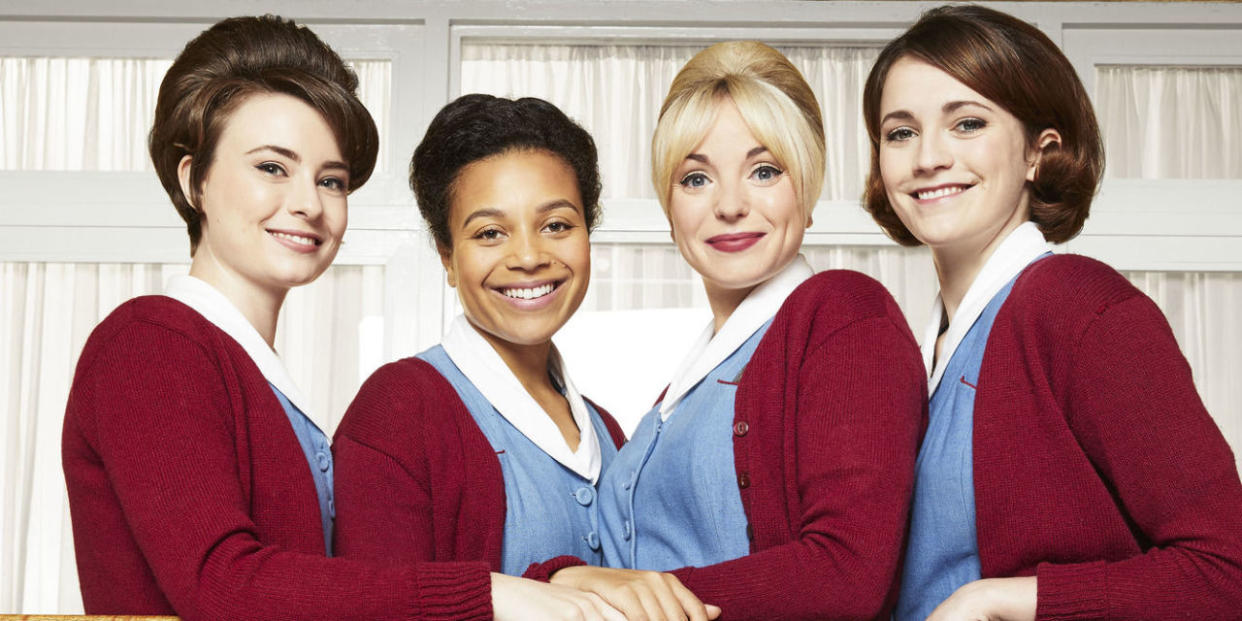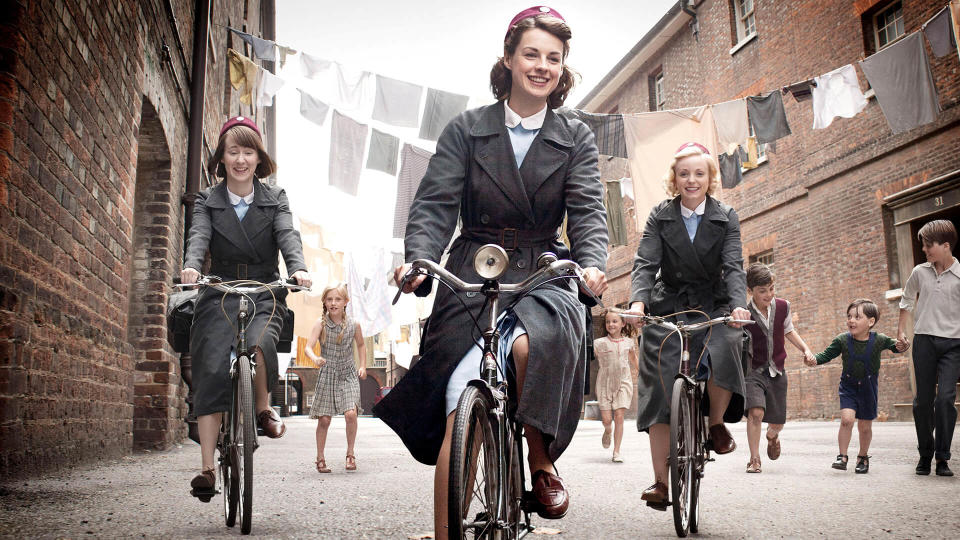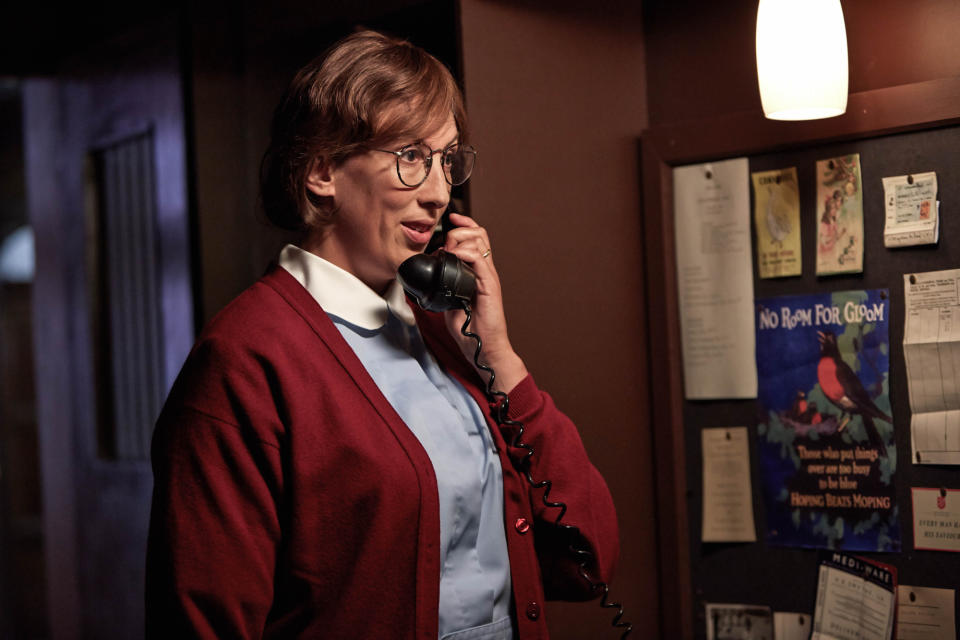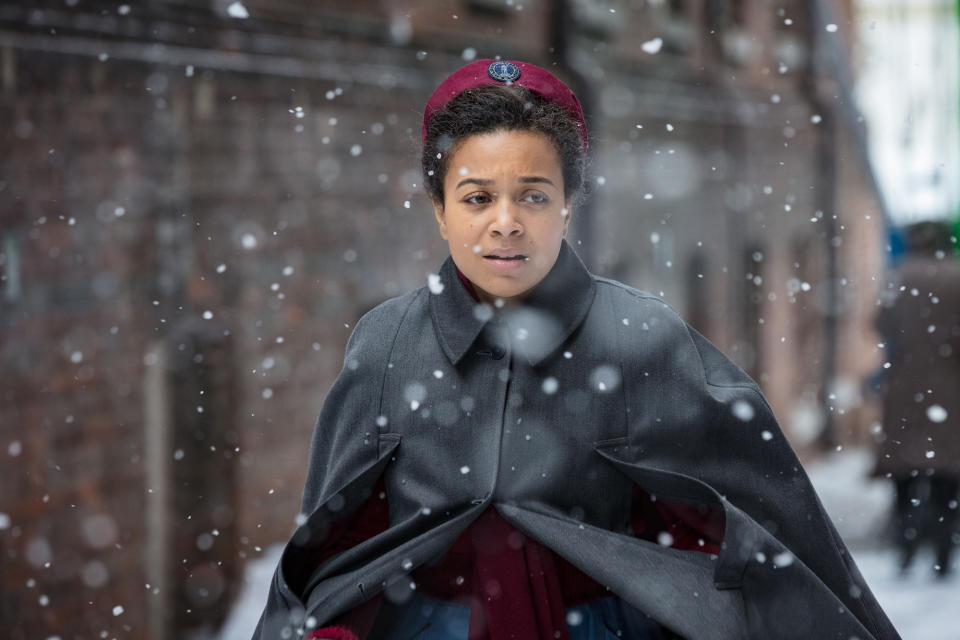Why Call the Midwife is more than cosy Sunday viewing

Far too often dismissed as cosy end-of-the-weekend viewing, BBC One's Sunday-night centrepiece Call the Midwife has, in recent years, tackled everything from female genital mutilation to a prescription drugs scandal.
Heidi Thomas's drama starts its seventh series this weekend and this year everything from the rise of the idea of a "teenager" to the Space Race becomes relevant to the show, alongside changes in midwifery – particularly the then-shocking idea that the father should be present at the birth – as well as racism and alcoholism, all seen through the prism of the nuns and midwives based at Nonnatus House.
Call the Midwife is the latest in a long line of TV series – particularly ones shown on Sunday evenings – that tap into the audience's nostalgia for the 1950s and 1960s (think of Heartbeat and its spin-offs).

"Young people look at it as very much a period piece, older people look at it and remember the times," says star Jenny Agutter. However, unlike many of those other shows, Call the Midwife doesn't try to gloss over the less pleasant sides of life half a century ago – particularly the Thalidomide scandal – or avoid areas that are still pertinent today. It has never flinched from the medical procedures involved – whether it's an troublesome birth or the insertion of a Dutch cap – but it's also never gratuitous.
"The world is changing one woman at a time" may sound like something that has arisen from the #MeToo movement but actually was Heidi Thomas's mantra for the fourth season of the show back in 2014. It's led to the series being voted the best drama of the 21st century by readers of the Radio Times – beating out competition from far more highbrow shows including Happy Valley and The West Wing – and the guarantee from the BBC of at least two more series to follow this one.
The first series, broadcast in 2012, was set in 1957, with each season moving forward a year – the most recent Christmas special covered the big freeze winter of 1962/63 and series 7 will follow the midwives of Poplar through 1963.

It began life as an adaptation of the memoirs of real midwife, Jennifer Worth, who sadly died just before the show premiered. Her trilogy of books were a rich source of characters and material: Worth worked in Poplar in London's East End, attached to the convent of Community of St John the Divine, an order of Anglican nuns (changed to Nonnatus House for both book and TV series), and wrote unflinchingly about sex, birth and death. As The Independent noted, "Her compassion and anger drive the shock and gore", and that's applied to the series that followed.
Thomas's screen version provided perspective on the sometimes shocking events using an older Jenny (voiced by Vanessa Redgrave) as narrator – with the core characters initially derived directly from Worth's books. Jessica Raine played Jenny, with Bryony Hannah and Helen George key among the nursing staff.
Jenny Agutter, Pam Ferris and Judy Parfitt were the nuns whose worldliness (or lack thereof) provided much of the show's contrasts. And then there was Miranda Hart's "Chummy" Brown – a world away from the madcap antics for which the actress was best known at the time.

The cast has changed considerably over the past seven years, with new faces joining every year. Call the Midwife has its first regular Caribbean character among the staff this year with Leonie Elliott's Lucille Anderson joining the team, reflecting the way that the West Indian community grew during the period the show is now covering.
Characters have come and gone, marrying, dying, disappearing off to Africa, but no one departure has led to the audience's affections for the programme dropping off. "One of the things people seem to really love about Call The Midwife is that it's centred on a family in Nonnatus House," Heidi Thomas explains, and the audience has become heavily invested in that family and all those it touches.
Constant evolution is something that's been key to the show's success. "The world is always changing and the boundaries they're all operating within are too," star Charlotte Ritchie noted recently, and Thomas and her team have ensured that attitudes and characterisation have followed suit.

"There was a lot of change in the way people were living in the early 1960s," Thomas notes. "People were moving out of the East End, instead of living next door to your Mum or across the street from your aunt, you perhaps were not physically related to your neighbours."
Call the Midwife has inevitably moved well beyond Worth's memoirs now, with Thomas's research providing plotlines, incidents and characters to more than fill each eight-episode series. Finding an archived medical report from 1960 gave Thomas many of series 4's plotlines: it was "full of simple statistics about cancer, dysentery, birth and stillbirth, a plague of rats, care of the elderly; it captured the very stuff of life."
It may not be cosy Sunday night viewing, but at its heart, Call the Midwife is one of the most optimistic shows on television. As Agutter notes: "There's always the possibility of a better future when a child is born."
Call the Midwife returns tonight (Sunday, January 21) at 8pm on BBC One.
Want up-to-the-minute entertainment and tech news? Just hit 'Like' on our Digital Spy Facebook page and 'Follow' on our @digitalspy Twitter account and you're all set.
You Might Also Like

 Yahoo News
Yahoo News 
